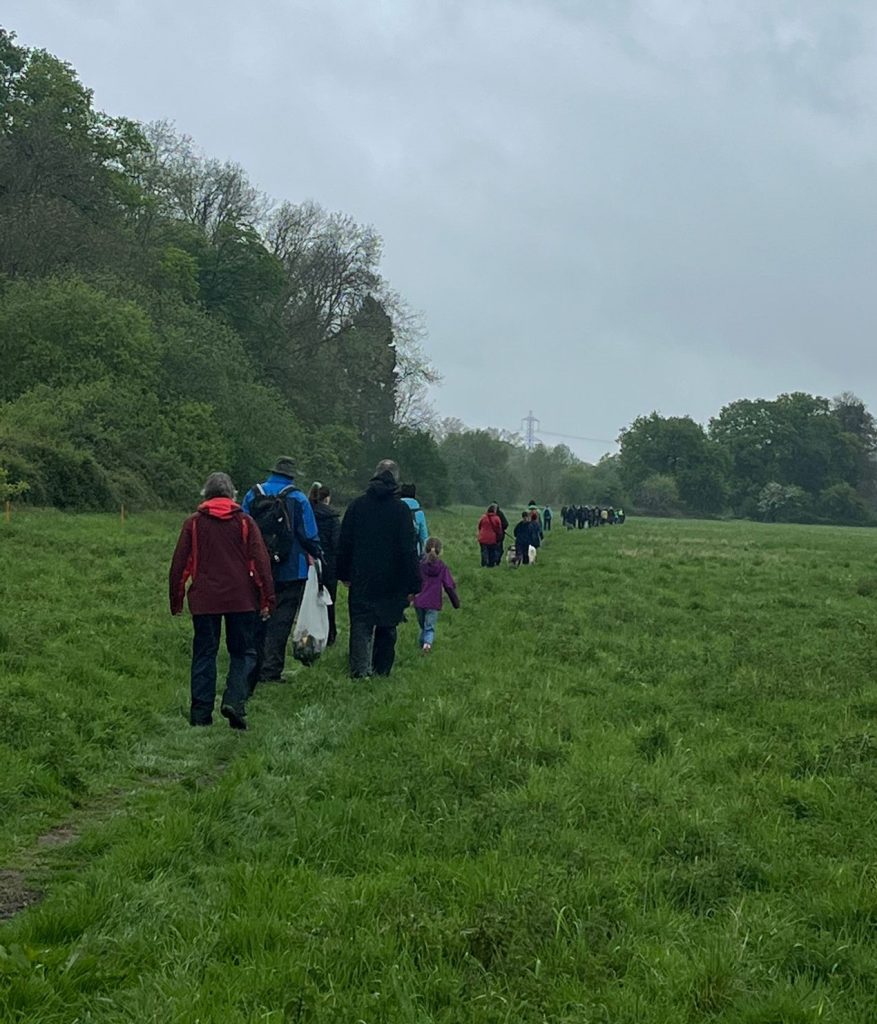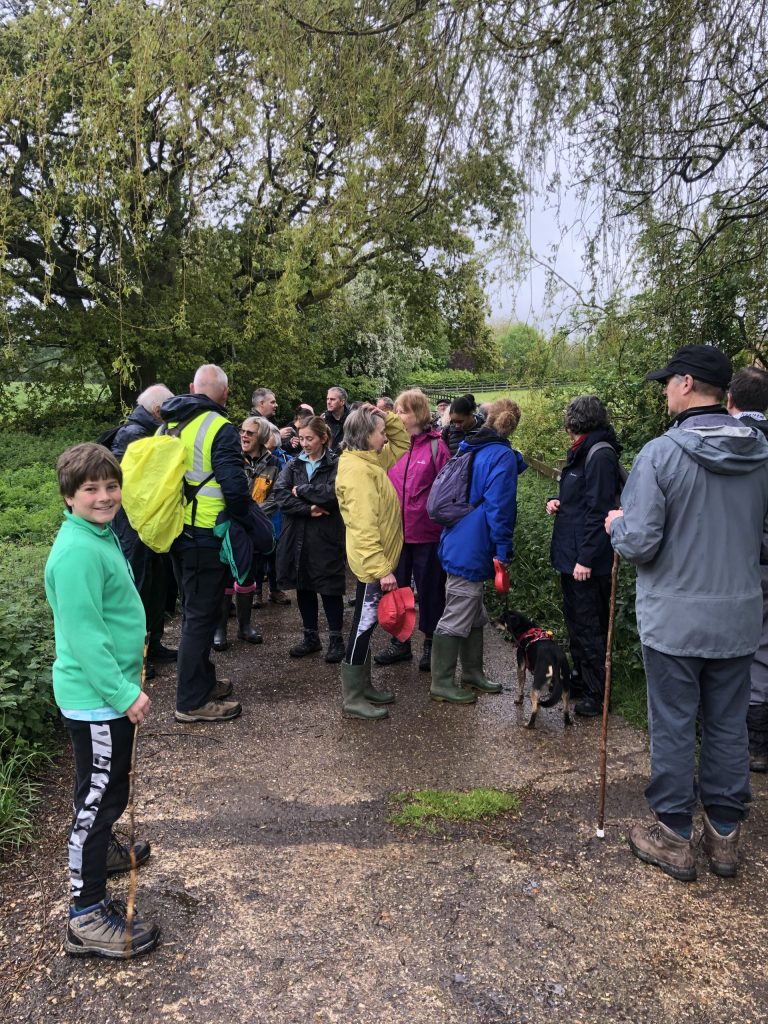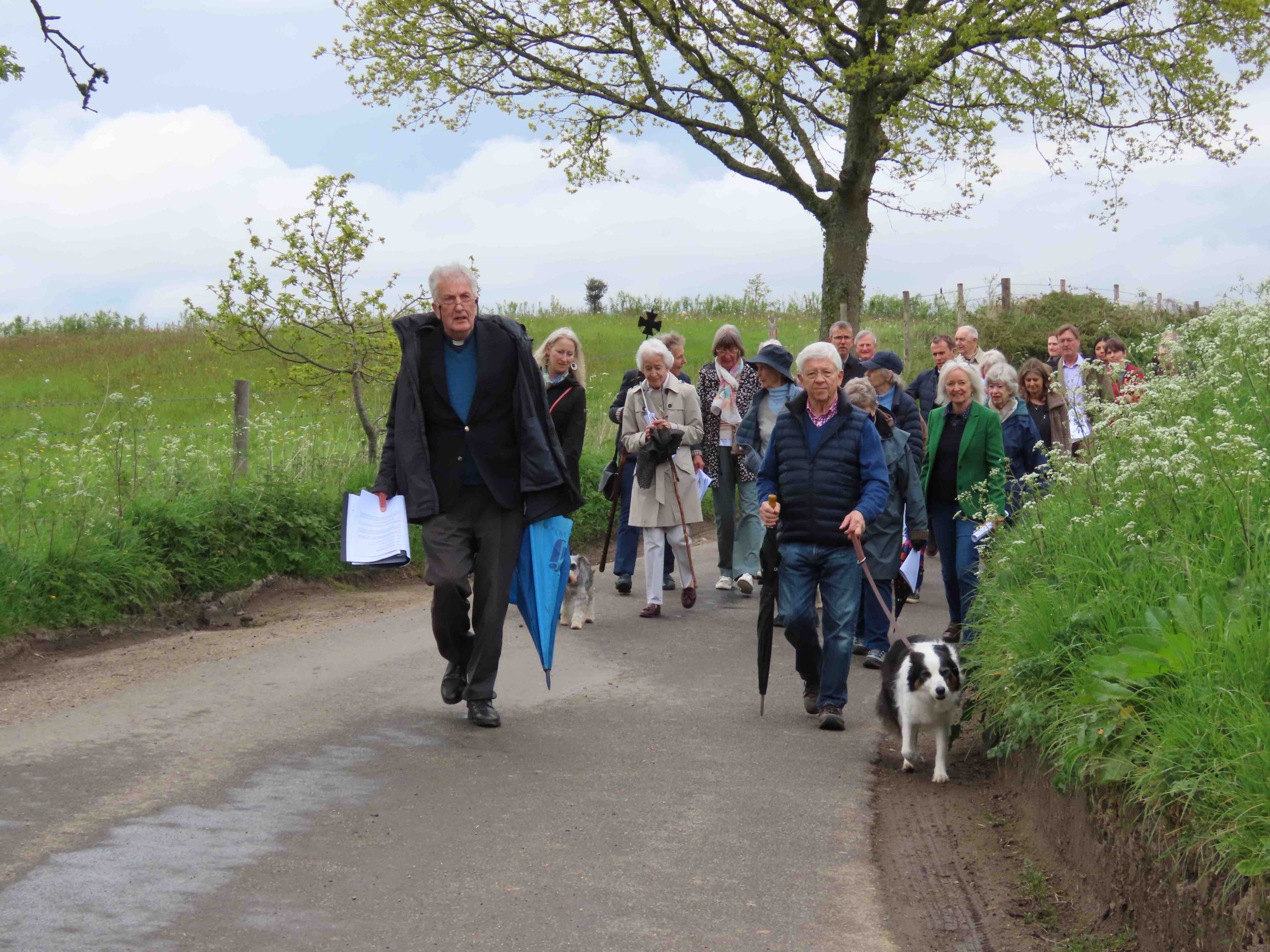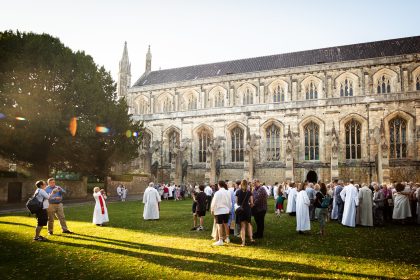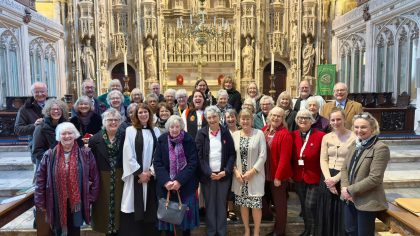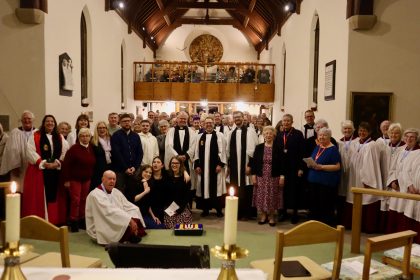It’s a tradition dating back centuries. Rogationtide is the three days between the last Sunday of Easter and Ascension Day – a time to ask God’s blessing on the land and the community who work it, the crops and animals. It’s marked in many ways, most commonly in rural parishes, often with a church service or outdoor service, followed by a Rogation walk, also known as ‘beating the bounds’ when a parish would walk its boundaries. Traditionally, people would carry willow wands to literally beat the boundary markers with, and in some ceremonies children had their heads bumped on boundary stones to imprint the borders firmly in the memory!
Last week, villagers from eight churches in the Northanger Benefice near Alton joined together to celebrate Rogation Sunday, walking from St Nicholas Church in West Worldham to St Leonard’s in Hartley Mauditt, stopping to say prayers and blessings along the route (although fortunately there was no head bumping!), with the procession and service led by the Bishop Philip.
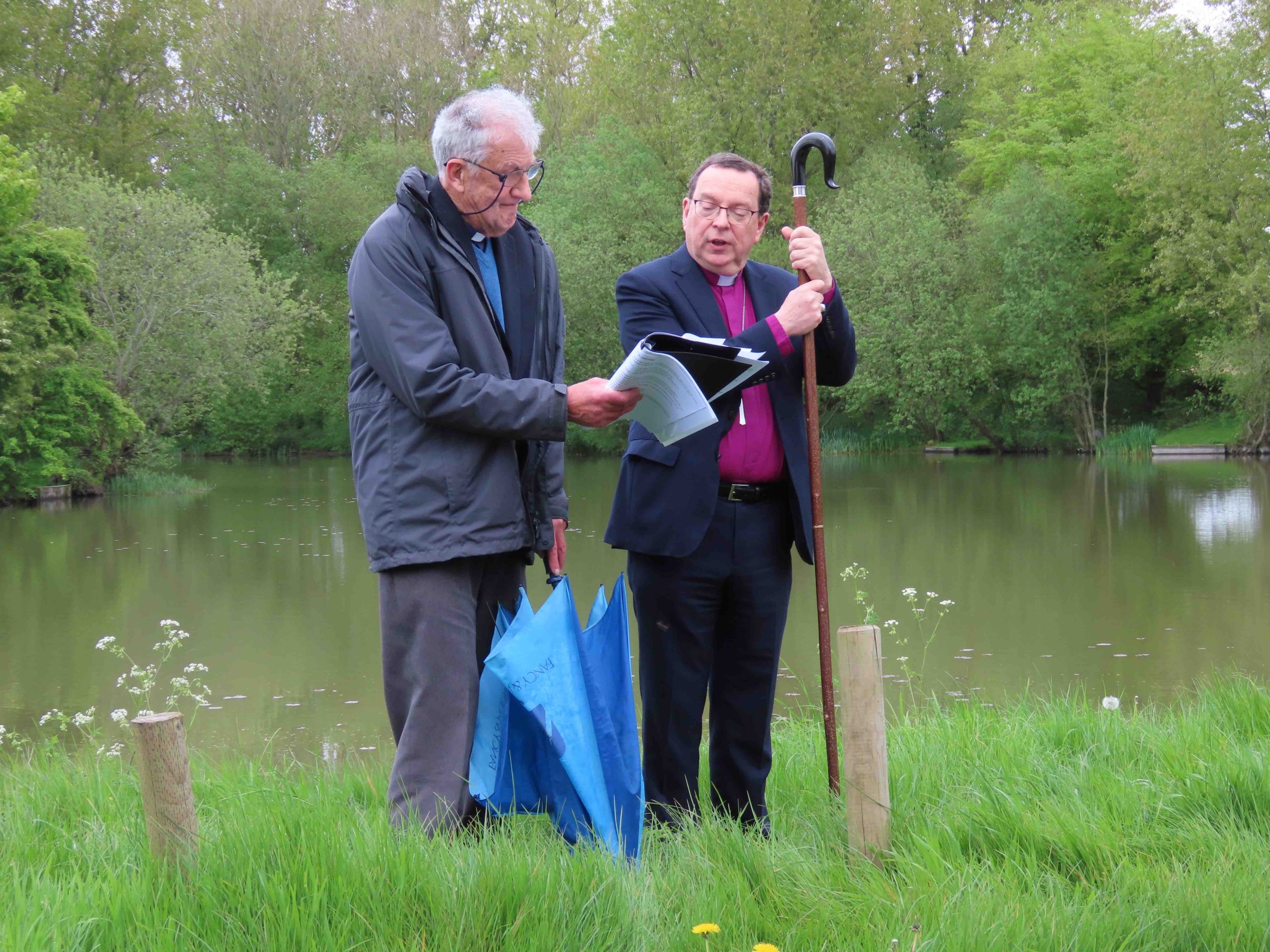
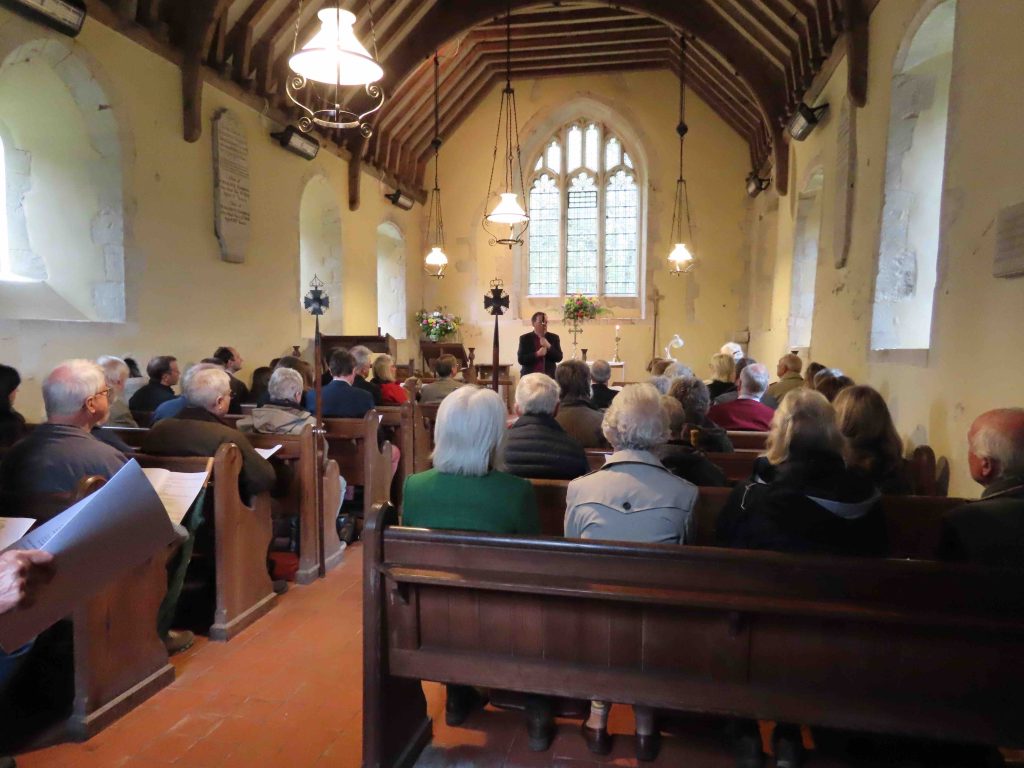
Revd Lesley Leon, Associate Priest in the Northanger Benefice, said: “There’s a long tradition of Rogation Day from way back to the first prayer book which Elizabeth I was responsible for. It was a way of getting parishes to look after their boundaries to make sure everybody knew what belonged to who. It was loosely based on not coveting your neighbours’ belongings or land. Parishes would walk around their boundaries and they would take the boys with them and they would get knocked on the shoulder with a stick to make sure they remembered exactly where the boundaries were. It was a time to walk around the fields to ask for God’s blessing on them and the coming agricultural year. The tradition fell away but came back in a big way after World War Two when people realised that agriculture was really important because it had kept them going during the war.”
The Rogation walk in the Northanger benefice is based on a service written around 1950. Villagers filled St Nicholas Church for a short service including a hymn, prayer and reading before setting off on the procession. Dogs were also welcomed!
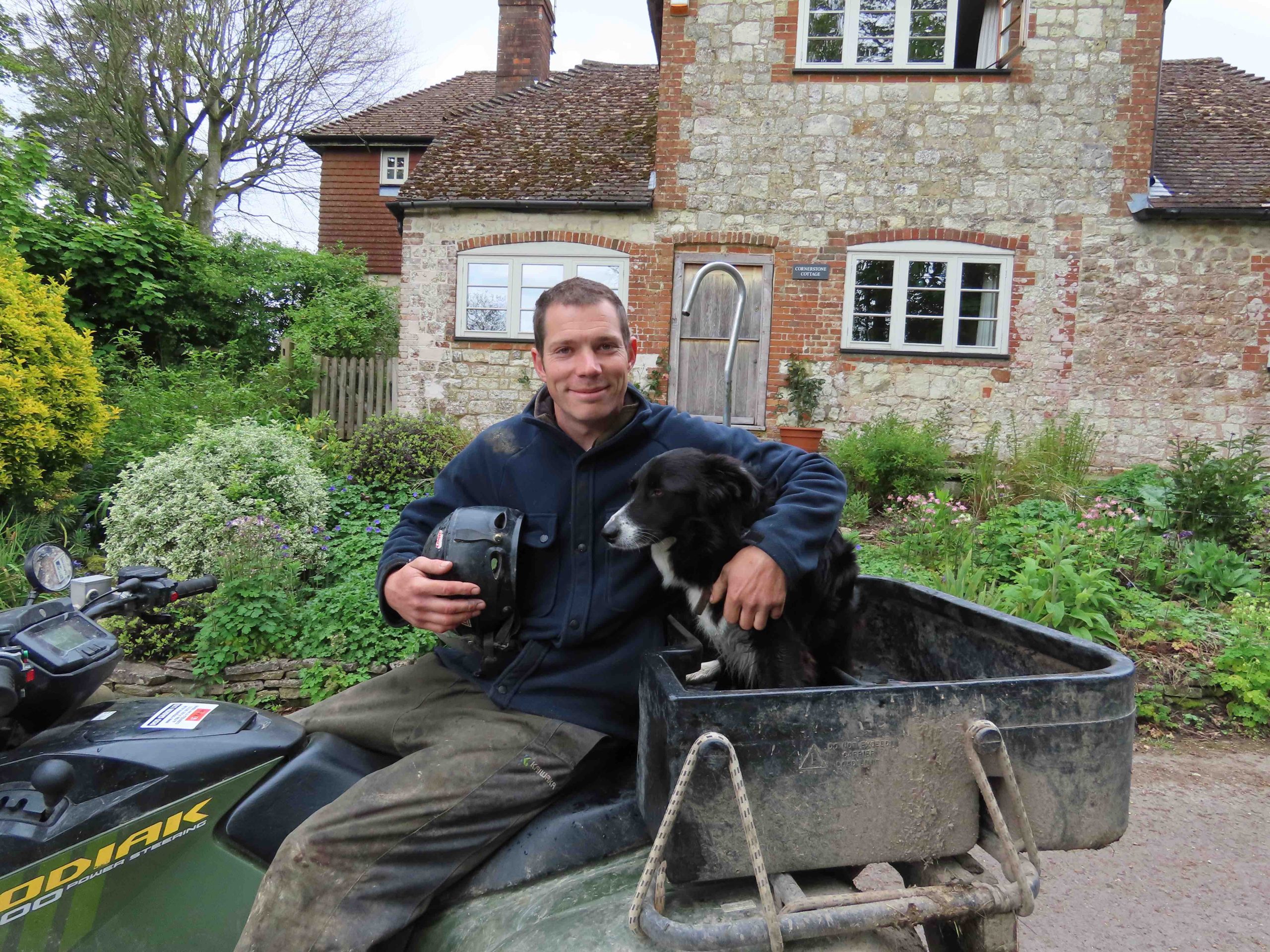
The procession stopped at the farmyard, the Worldham Oak tree, in a local garden, at the cornfield, the meadow, Hartley Pond and the churchyard of St Leonard’s, before finishing with another short service there.
The word ‘rogation’ comes from the Latin verb rogo – ‘I ask’. It’s about asking God for what we need. The act of asking is significant, because it reminds us that we are not masters and mistresses of our own destinies: we are not independent but dependent. We need help. We depend upon the good earth beneath our feet. We depend upon those good people who work the good earth for us, who help it produce good crops and food to sustain us. And we depend upon our good God who nurtures and sustains all life. We should take none of these things for granted. They are not ours by right but gifts to be cherished.
Bishop Philip
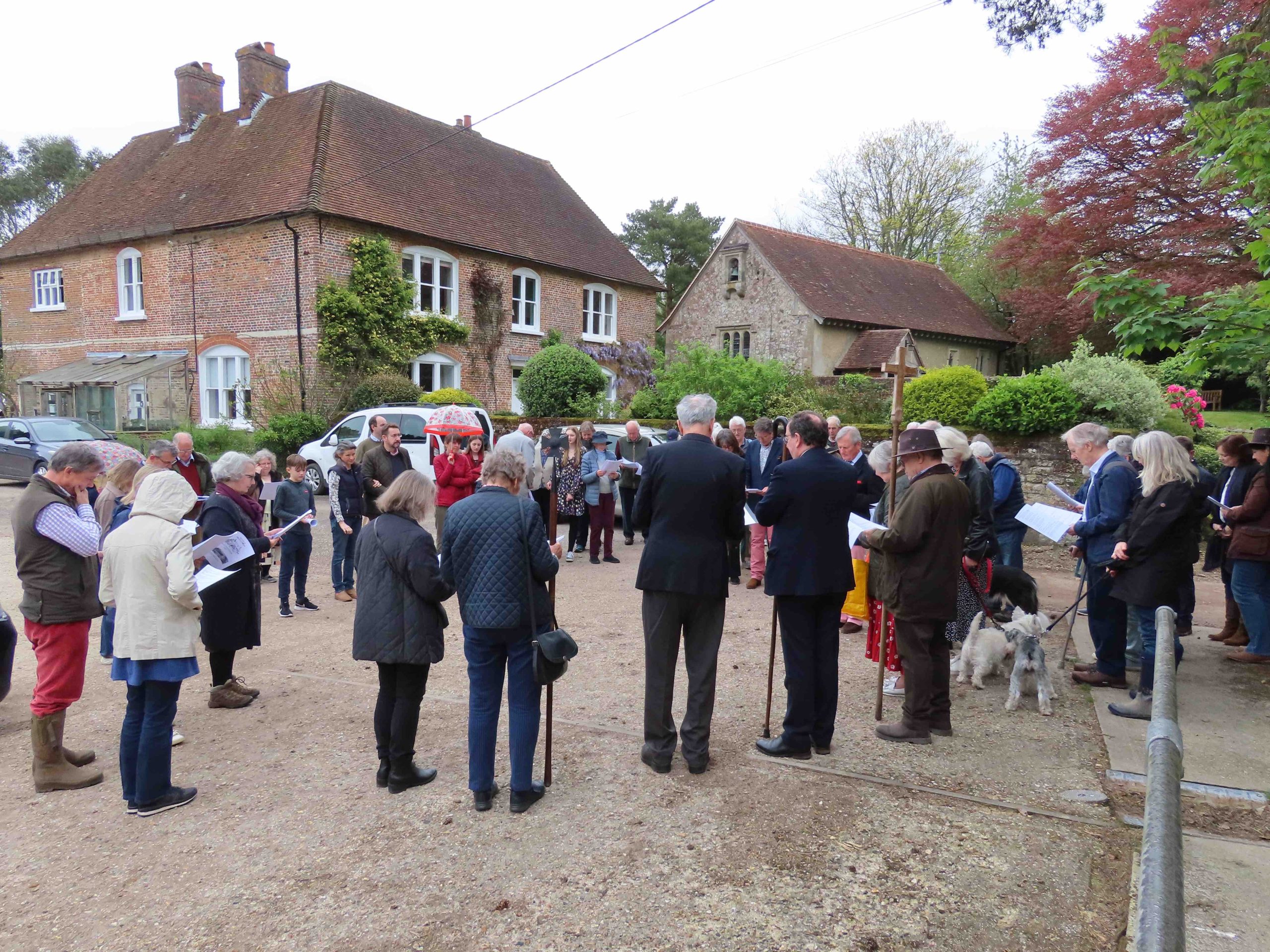
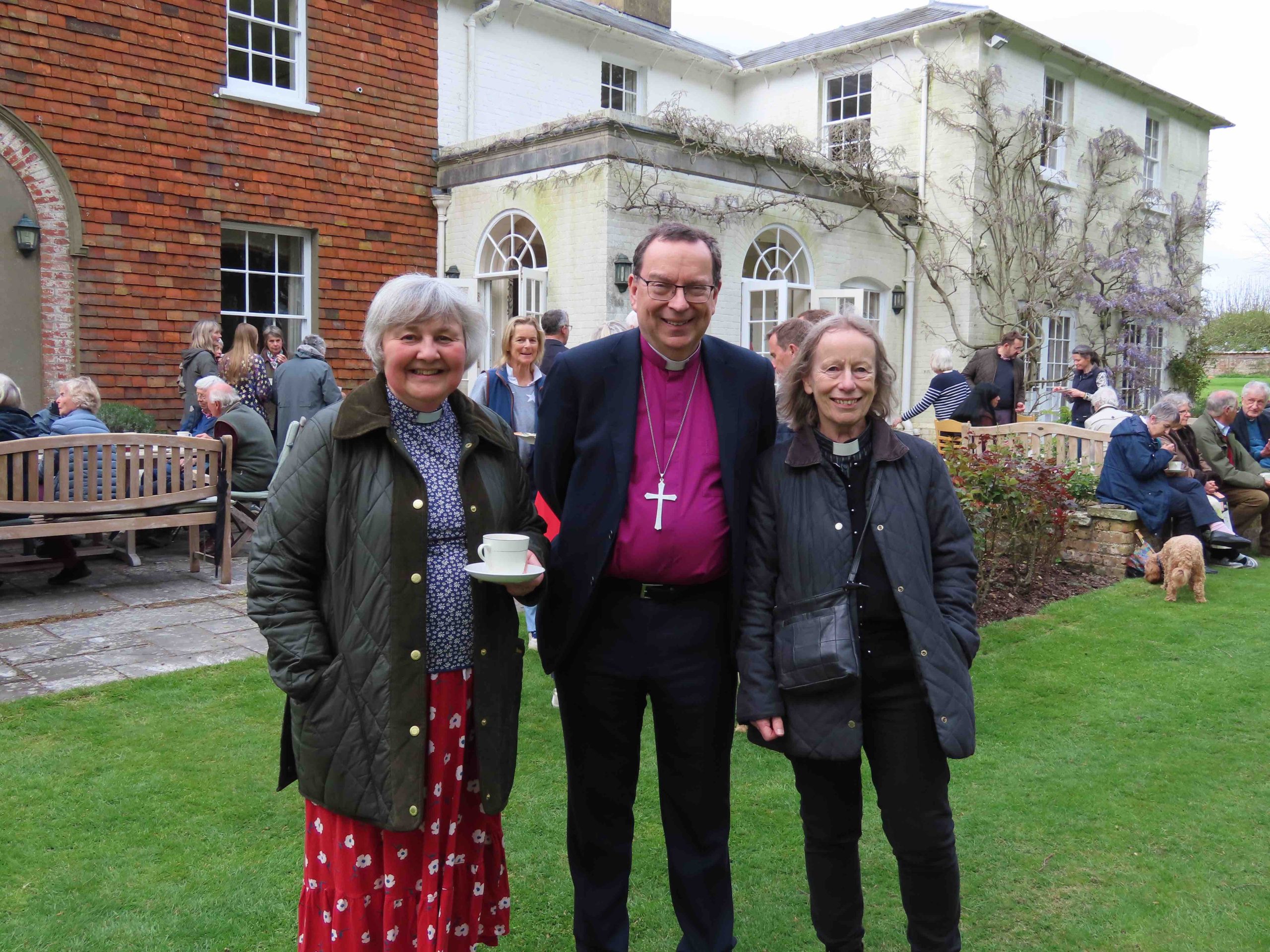
The Northanger benefice covers around 60 square miles to the south of Alton and farming has played a key role in this area. Thomas Brock’s family has been farming in the village for 125 years. He was a Churchwarden for more than 40 years following in the footsteps of his father and grandfather before.
“I remember Rogation walks starting in 1947 when I was a child. We’re very much a rural parish so Rogation is so important. I appreciate the words that we have just heard. They are particularly meaningful to a rural community as I think we sometimes feel forgotten in the hustle and bustle of life. I always welcome this service as it’s good to have God’s blessing on our land.”
Luki Reynolds is the local shepherd. He said, “It’s nice to be a shepherd and work in this community. You don’t often see this many people all coming together, and the Rogation walk is hugely important to us.”
The walk took place between two churches, but it’s also seen as a way of bringing the entire benefice together, along with residents who may not regularly attend church. The celebration ended with afternoon tea and a chance for people to meet together.
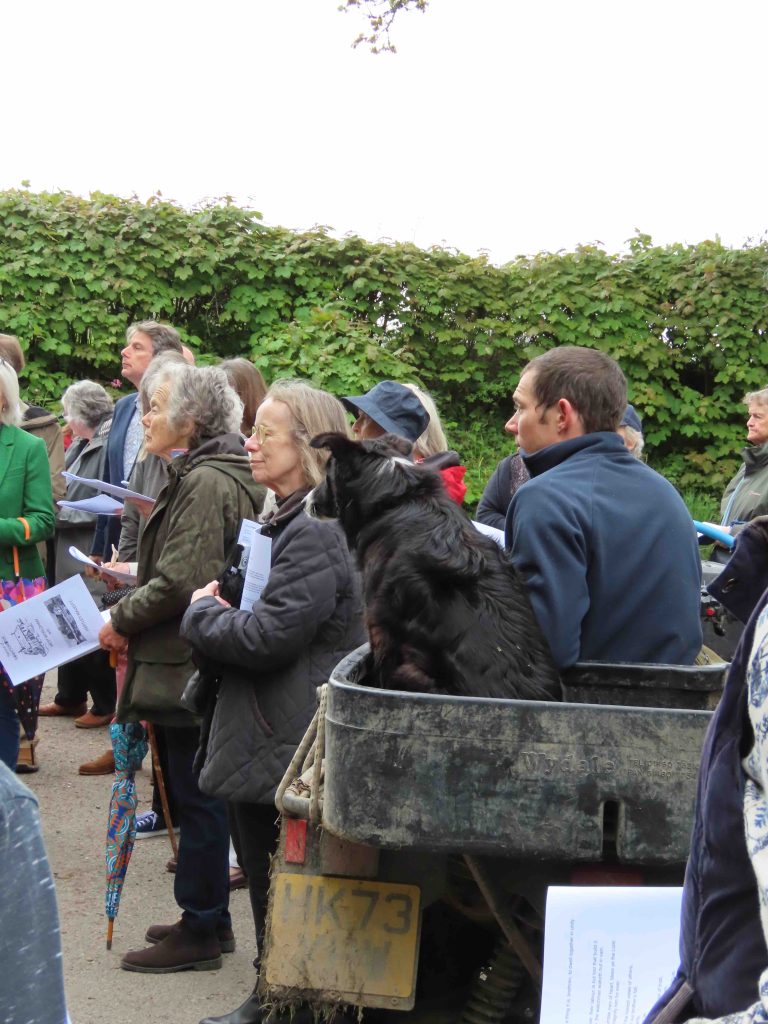
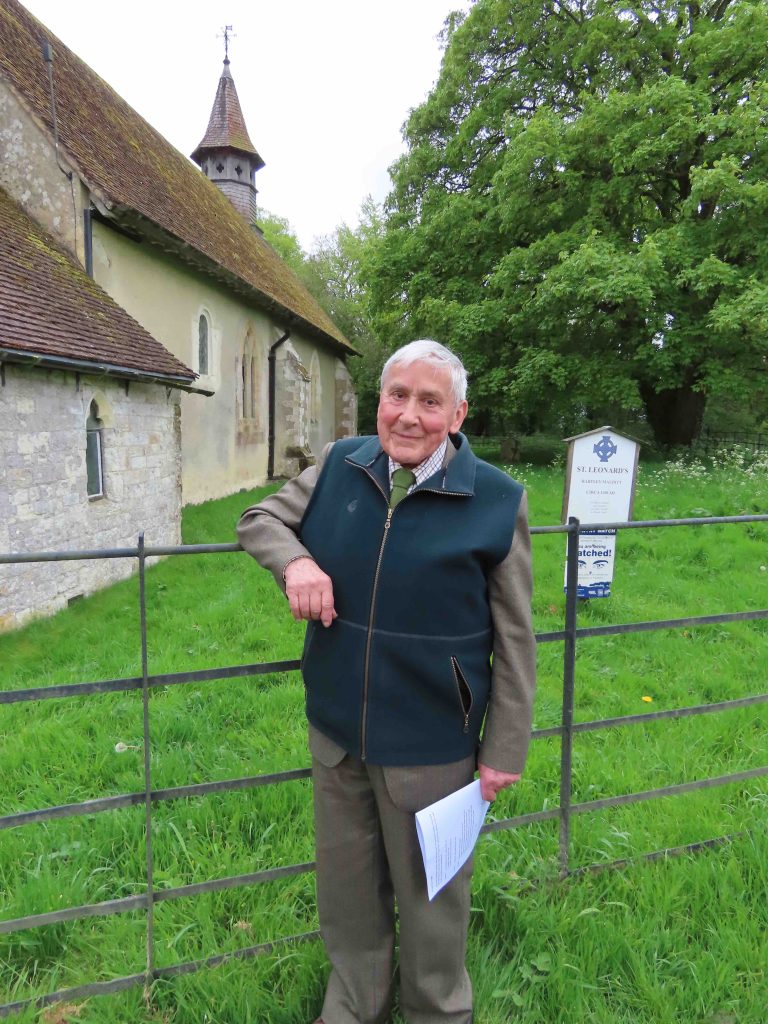
Churchwarden Helen Ellison said: “It means a lot to have this service. It’s very much a tradition. It’s also a community event because we usually get most of the village here and it brings lots of people into church which is lovely. It’s important to remember why we are doing it. We want people to know that we are here and to point people to Christ and know that he is alive today.”
Rogation services have taken place in other parishes around the diocese and seen as particularly important this year with many farmers struggling with flooding and rain sodden fields following the wet winter and spring.
Revd Lesley Leon is particularly passionate about rural ministry: “I love rural ministry and I wish more people could have the experience that I’ve had. I came here as a placement 17 years ago and I’ve been here ever since. Rural communities tend to have tentacles. Every community tends to know someone in the next one and it spreads like a net. It’s lovely to have all those connections and common interests in all of our villages and we can all work together. There seems to be a view that rural parishes are dead on their feet but they are not; we just live in a different way, a quiet way. When our church bells ring out, we know that everybody in the community hears them so they are reminded that God is here and they are being prayed for, whether they come to church or not and that’s really important”.
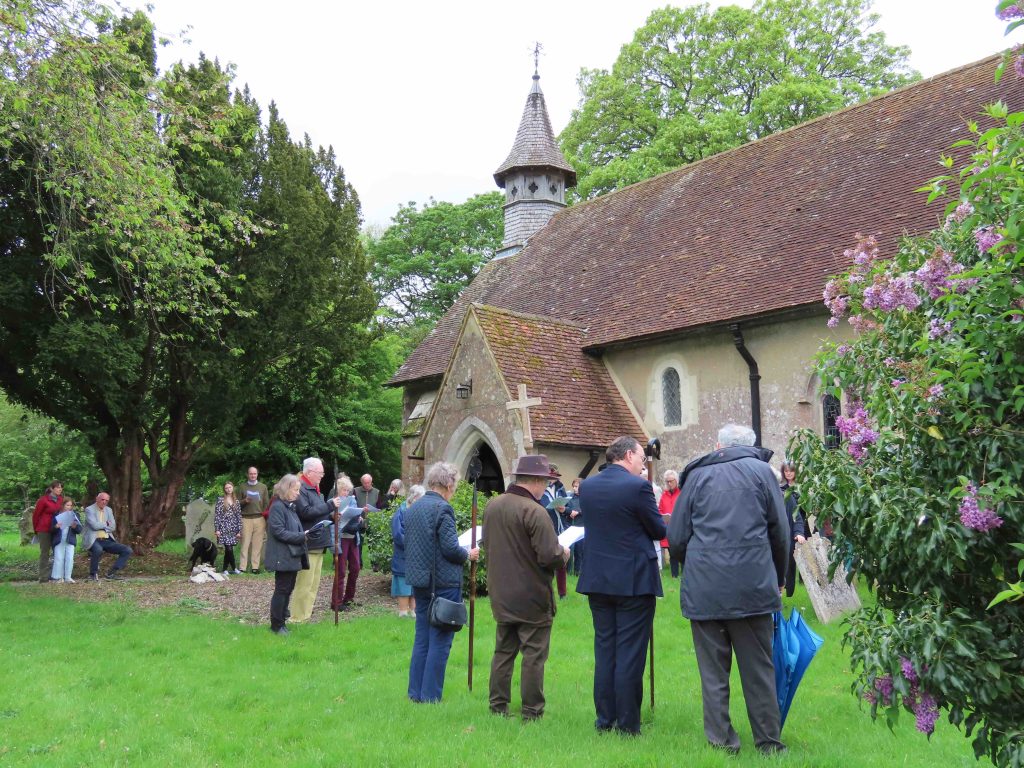
Also taking part in a traditional walk over Rogationtide was the parish of Sherfield on Loddon. The near constant rain on Bank Holiday Monday didn’t dampen the spirits of 50 or so walkers who took part in a Rogation Walk, to “beat the bounds” of all the parishes in the Benefice of Sherfield on Loddon and Stratfield Saye with Hartley Wespall with Stratfield Turgis and Bramley. Starting off with bacon rolls at St Leonard’s Church, Sherfield on Loddon, the walkers and five dogs covered twelve miles, ending at St James’ Church Bramley for a well-earned BBQ. At each church, the intrepid walkers were greeted with the sound of the church bells.
